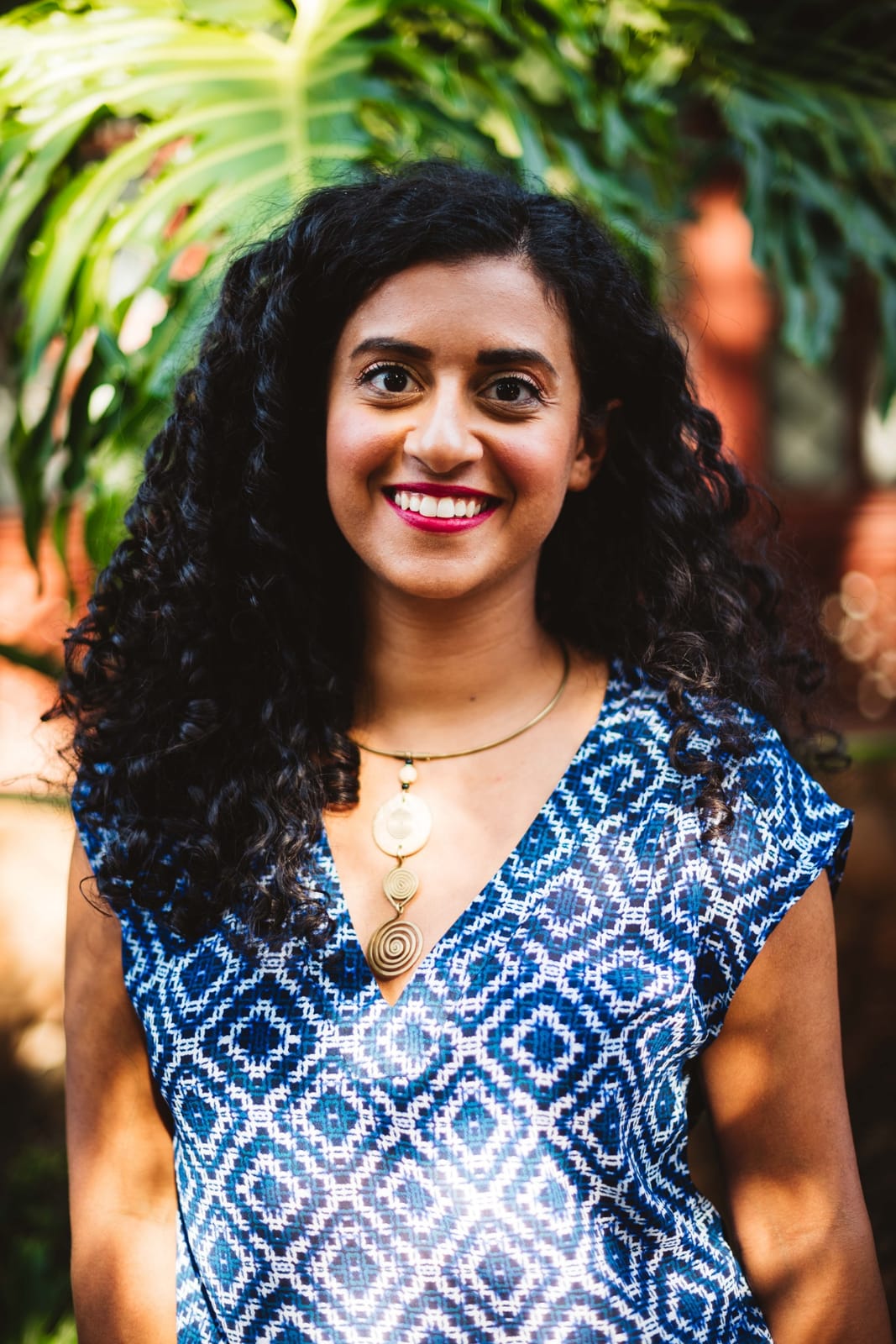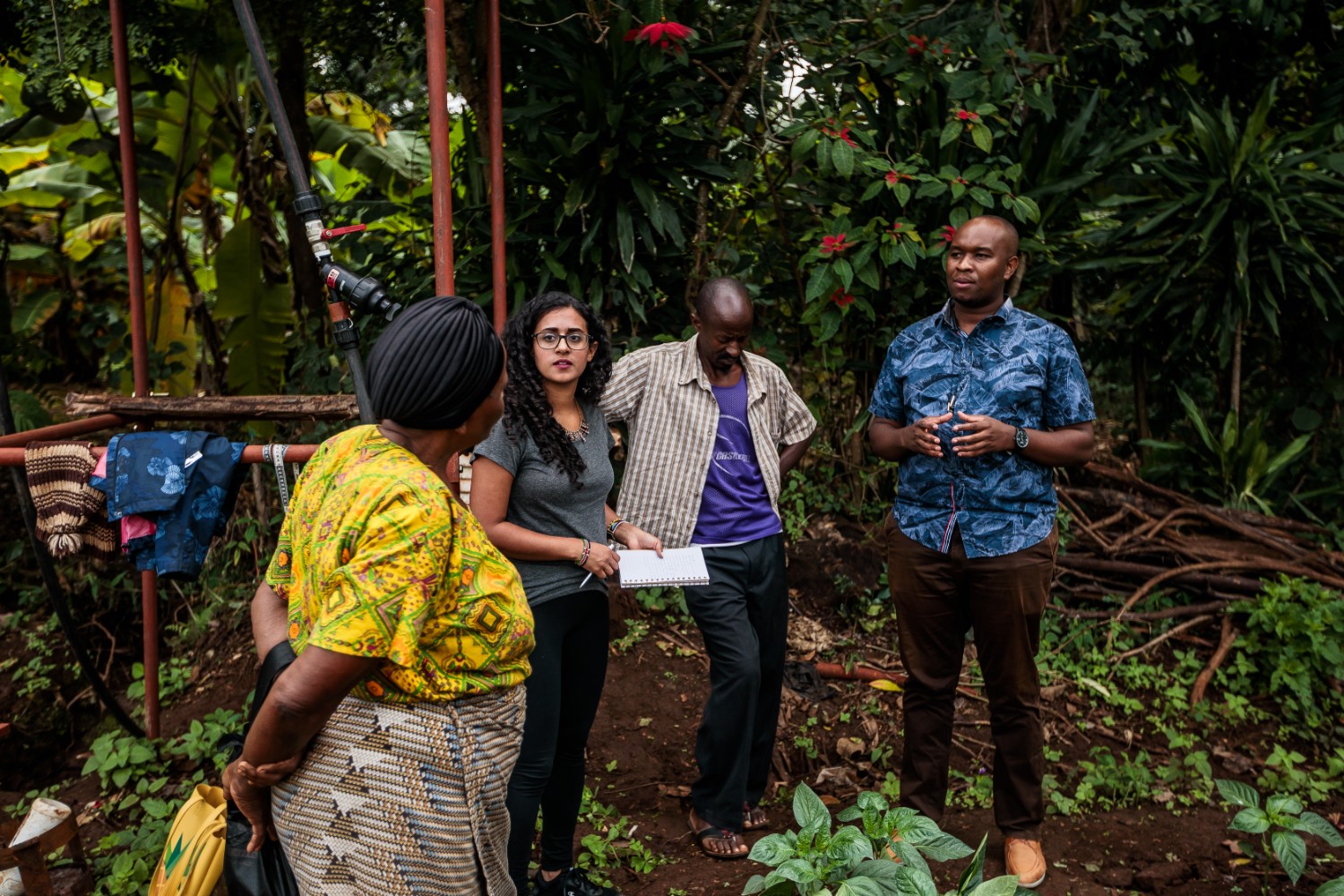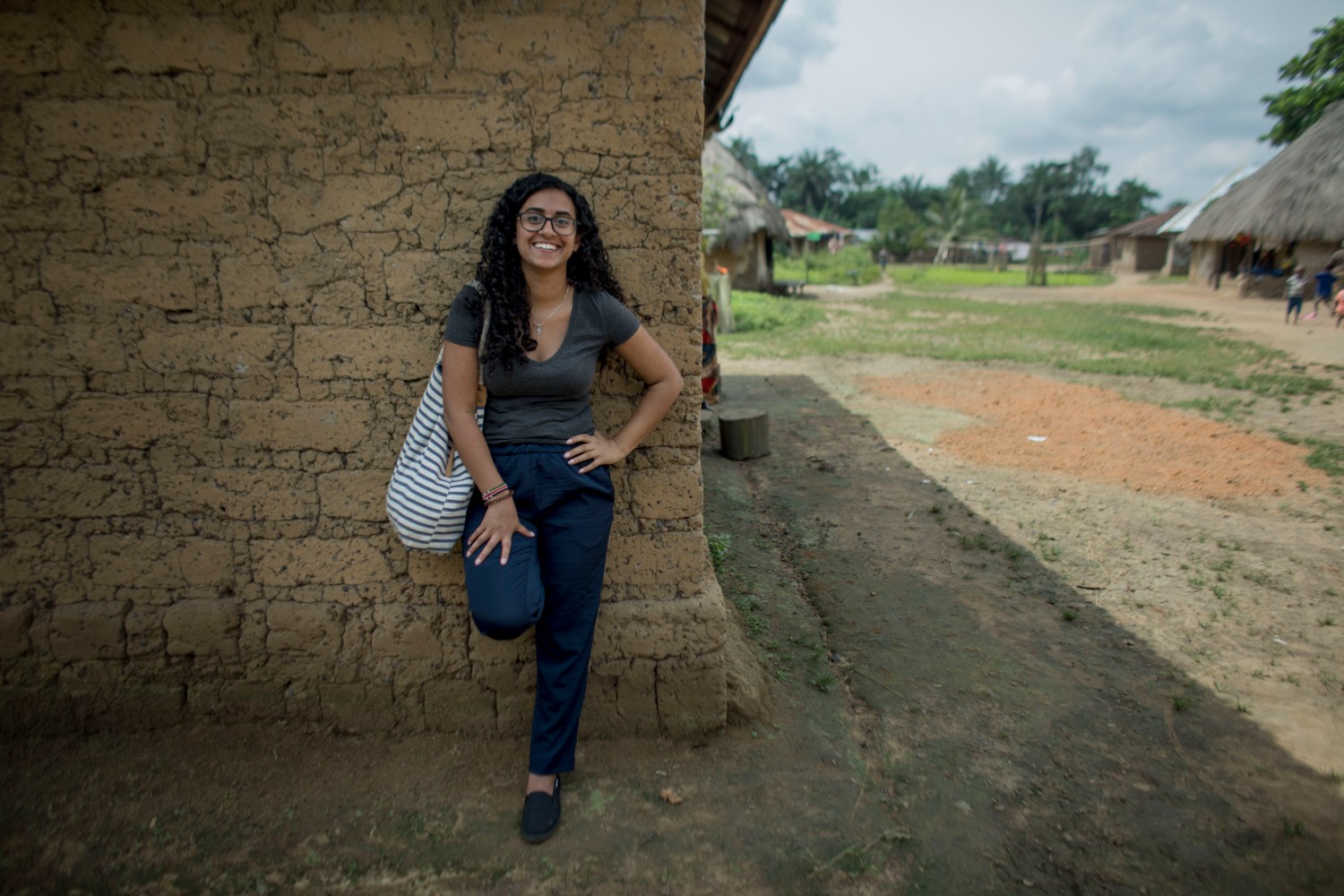Jacky Habib is a freelance journalist and founder of New Lens Travel, a social enterprise fostering connections between tourists and local storytellers in Africa. Get her tips for travelers and creators for socially responsible travel and storytelling.
Journalism shines a light on important stories that affect us all. From investigating problems to highlighting heroes, journalists create connections between the subject and the reader, often separated by time and borders.
Storytelling is at the very core of journalism, which makes perfect sense when you meet Jacky Habib.

A Canadian freelance journalist, Jacky splits her time between Toronto and Nairobi, where she reports on humanitarian issues, social justice, and women’s rights, with an emphasis on these issues across Africa.
Highlighting these stories and investigating these problems, Jacky could just publish her reporting and move on to the next topic.
But she doesn’t stop there.
She prioritizes creating valuable connections between locals in the places where she reports from and visitors to those places, all through quality storytelling.
So, to combine her love of journalism and her focus on social justice issues, she created a social enterprise: New Lens Travel.
Sharing Stories from Local Storytellers
“New Lens Travel is a company I started to encourage people to see Africa in a new lens, so to speak,” Jacky explains.
“Through my work as a journalist, I’ve met so many incredible people who are rewriting narratives about the continent,” she continues. “And I’ve learned so much from them. So I began hosting small group trips, where I bring people to Kenya and Ghana to connect with local creatives, activists, and others who are shaping narratives. On the trips, we travel across the country, meeting different storytellers in their communities and learning about social justice issues along the way.”
Connecting local storytellers with visitors offers an opportunity for both sides to truly benefit.
The storytellers gain a platform to directly affect the narrative being told about their home places.
The visitors, in turn, get a nuanced view of this place from someone who is intimately familiar with its culture, history, and future.

Tourism dollars can have an incredible impact on the places we visit. Choosing to spend them where the local community can most benefit is an ideal way to be a force for good.
While Jacky Habib is Canadian, New Lens Travel directly benefits local communities wherever you travel with them.
“New Lens Travel is a social enterprise,” Jacky explains, “Which means that unlike companies who measure their success in dollars, we focus on having an impact. This is why profits from our trips are donated to media training, so we can support youth in Kenya and Ghana with the skills needed to tell their own stories.”
The power of telling your own narrative cannot be reduced to dollars and cents. But honing those skills and reaching larger audiences certainly requires funding.
When you take a trip with New Lens Travel, your economic impact supports those positive programs.
The Art – and Humanity – of Storytelling
Every day in a wide variety of formats, we expose ourselves to the stories of other people and places all around the world. The media and content we consume affects our understanding of those people and places.
“When it comes to storytelling, it’s key that we hear from the right people,” says Jacky. “As a journalist, I could never write an article about an issue without speaking directly to members from the community it impacts. For example, if I’m writing a story about refugees, I must center a refugee in the story. This means interviewing a refugee, really listening with an open mind, and allowing the person I’m speaking with to shape the story.”
If our only impressions of other people and places come from media (news, social media, film/TV, etc), rather than personal connections, then we are beholden to the narrative being told to us.
As travelers, we have the unique opportunity to go beyond that media. We can seek to understand a narrative from a local perspective.

Travel is rather like good journalism.
But therein lies the question of how we consume travel, as much as how we consume media.
Most importantly, those who are creating content in travel must understand the platform they have. They must consider the way it affects the narrative being absorbed by their audiences.
If you’re a travel creator, do you seek those connections with people in the places you visit? Or do you skim the surface and then relay your outsider observations to your audience?
“Travellers love taking and sharing beautiful photos, but sometimes they’re missing context. I would encourage people to have more of this journalistic and documentary-style approach to their travel content creation,” Jacky offers. “Have conversations with locals. Share their stories. This will add so much depth to what you’re sharing. It’s also a responsible way to honour the people and places you’re visiting.”
Seeking Socially Responsible Travel
There is a movement to make travel better, especially given this dramatic pause in the industry during the pandemic.
Sustainable and ethical travel proponents have been shouting from the rooftops for years. Yet their calls for change were often met with reticence and a quiet acceptance that dramatic change was just too hard.
Enter: Covid-19.
Maybe you have used this pause to reflect on how, where, and why you travel. So you might now be seeking more socially responsible opportunities for your future adventures.
“I think a lot of travellers genuinely want to do good abroad, but don’t know how,” Jacky says.
So the first step is to learn.
“For example, public opinion on voluntourism has always been positive, until about the last decade,” she explains. “Now, more people know these types of short-term, non-specialized volunteer abroad opportunities can do more harm than good. But we still have a travel industry that heavily promotes volunteer abroad opportunities and does things like creating fake orphanages in order to bring international volunteers and money, while putting local children at harm. I’d really like to see more regulation on things like this.”
Changing the travel industry has been a slow slog. But change happens regardless of its pace.
Whether we’re talking about sustainability, ethical travel, or diversity in travel, there is progress being made. And each of us — travelers and content creators — contributes to that progress.
Learning to Be a Better Traveler & Creator
As individual travelers, these concepts of socially responsible and ethical travel can seem vague and too big to tackle on our own.
But even individual travelers can create positive change.
“The first step is learning more about socially responsible travel,” Jacky offers. And you can certainly start by opting for tours like those offered by New Lens Travel. There, your tourism dollars stay in the local community and local storytellers share their own narrative.
But, she continues, “I see a lot of shaming unfortunately in the travel community when people post those typical white saviour photos with orphan children in Africa, or when they’re riding elephants in Asia — neither of which are responsible.
“Everyone makes mistakes and it’s our responsibility to learn from this, and to do better once we know better,” she says. “We also have a part to play in helping educate other travellers without shaming them. There are a ton of resources online where people can learn about being a better traveller, and that’s a good place to start.”
We can individually evaluate our actions as travelers and evolve our storytelling as content creators.
These are both critical to positively changing the travel industry as a whole.
“Content creators are really well-positioned to share what socially responsible travel looks like,” Jacky explains. “If you’re traveling, you can literally show us that you pay more to enter a museum than a local does, and tell us why this is important. Talk about privilege and accessibility — let’s normalize this.
“Show us the businesses you support when you shop at a local market,” she continues. “Let us know how you did the research to find a hotel that isn’t foreign-owned. Talk about why that’s important. Tell us the stories of people in these places. There are so many ways you can do this.
“I think when more content creators do this, their audience will really learn how it’s done, and be more encouraged to do the same when they travel.”
Creators: Get insights + tips to help you thrive.

None of us, individually, can change the entire travel industry for the better.
But we can each make choices in how we consume media, how we travel, and how we share the stories of our travels.
Whether you have a global audience or you’re just sharing stories at the dinner table, the way we tell stories about other people and places matters.
Let’s all try to travel and to view the world through a new lens, so to speak.
More About New Lens Travel
Learn more and get involved with New Lens Travel via their website.
Get on the email list to learn from the storytellers and to reshape your own view of their home places.
Anxious to join a future trip? You can add yourself to the waitlist to stay updated when new dates are announced.
Feature image credit Brian Otieno/gainhealth.org














































